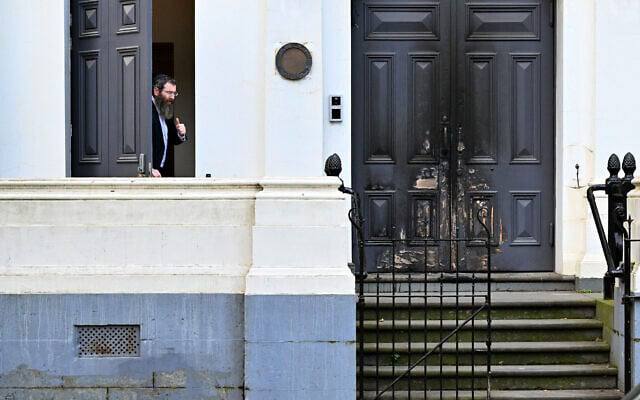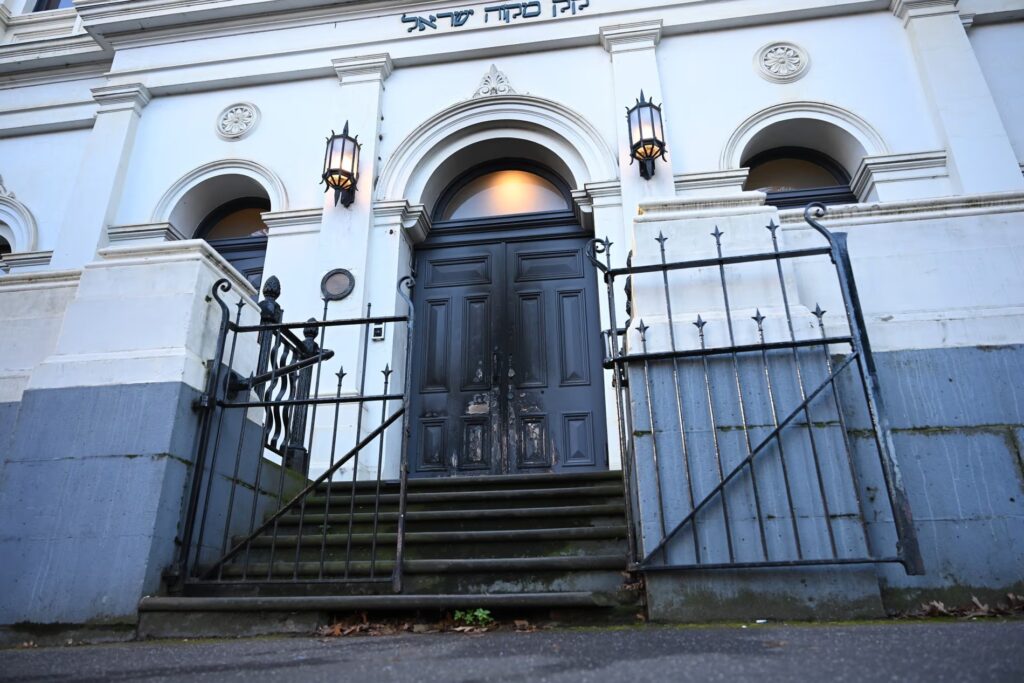RESOURCES
Backgrounder: Who’s who in the new Israeli government
June 18, 2021 | AIJAC staff, Zachary Milewicz
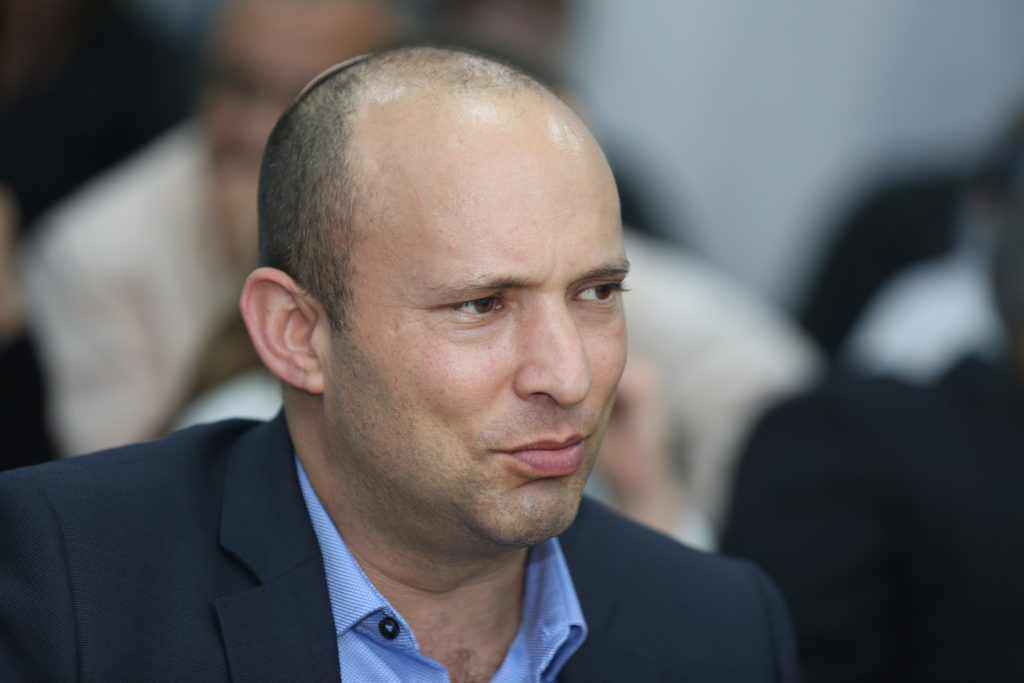
This past Sunday, on June 13, the 36th government of Israel was sworn in. The new government is a diverse coalition comprised of eight parties, and will be led by Prime Minister Naftali Bennett for the next two years, after which Yair Lapid will take over. The new 28-member cabinet features record diversity. It includes nine women (the most in Israel’s history) and three observant Jewish men. It has an Arab Muslim member and a Druze Arab member, while another Arab Muslim will be a deputy minister. Five are immigrants – born in Ethiopia, Morocco, and the former Soviet Union.
The governing coalition includes three right-wing parties, two centrist parties, two left-wing parties, and one Arab Muslim party.
Here is some background on some of the key players in this uniquely Israeli new government:
Prime Minister: Naftali Bennett (Yamina)
Naftali Bennett was born in Haifa to American parents, and throughout his childhood, he moved back and forth between Israel and the United States. He served as a company commander in the elite Sayeret Matkal and Maglan commando units and studied law at the Hebrew University of Jerusalem. He then co-founded Cyota, a hi-tech anti-fraud software company, and served as its CEO while living in New York. This company sold for $145 million to RSA Security in 2005, and Bennett went on to become the CEO of Soluto, another hi-tech startup. He moved back to Israel and began his career in politics, serving as chief of staff under Benjamin Netanyahu in 2006 when the latter was sitting in opposition.
In 2012, Bennett was elected chairman of Habayit Hayehudi (“Jewish Home”) – National Religious Party, and in 2013, he led his party to win 12 seats in the Knesset. He was appointed Minister of the Economy, Minister of Religious Services, and Minister of Diaspora Affairs. He held the first two appointments until 2015, while he continued to serve as the Minister of Diaspora Affairs until 2019 alongside his role as the Minister of Education. As Minister of Education, he reduced the number of students in classrooms and added assistants to kindergartens. He also led the national plan for strengthening mathematics and science studies in Israel.
In late 2019, Netanyahu appointed Bennett (now of the Yamina [“Rightwards”] party) Defence Minister – in part to prevent him from joining rival Benny Gantz’s alternative coalition. However, in May 2020, after Netanyahu and Gantz agreed to work together to form the unity government, with Gantz taking the defence portfolio, Bennett refused to join and called for Netanyahu to step down.
Bennett has hawkish views on relations with the Palestinians, but while he has ruled out agreeing to a two-state solution with the Palestinians in the past, in recent years he has somewhat softened his stand on this issue (see Ahron Shapiro’s blog on this for the details).
He has now joined Lapid and other right-wing, centrist and left-wing parties in a coalition with a narrow one-seat majority. Under the agreement, Bennett will be the Prime Minister for the next two years, overseeing Israel’s most diverse coalition, composed of eight different parties.
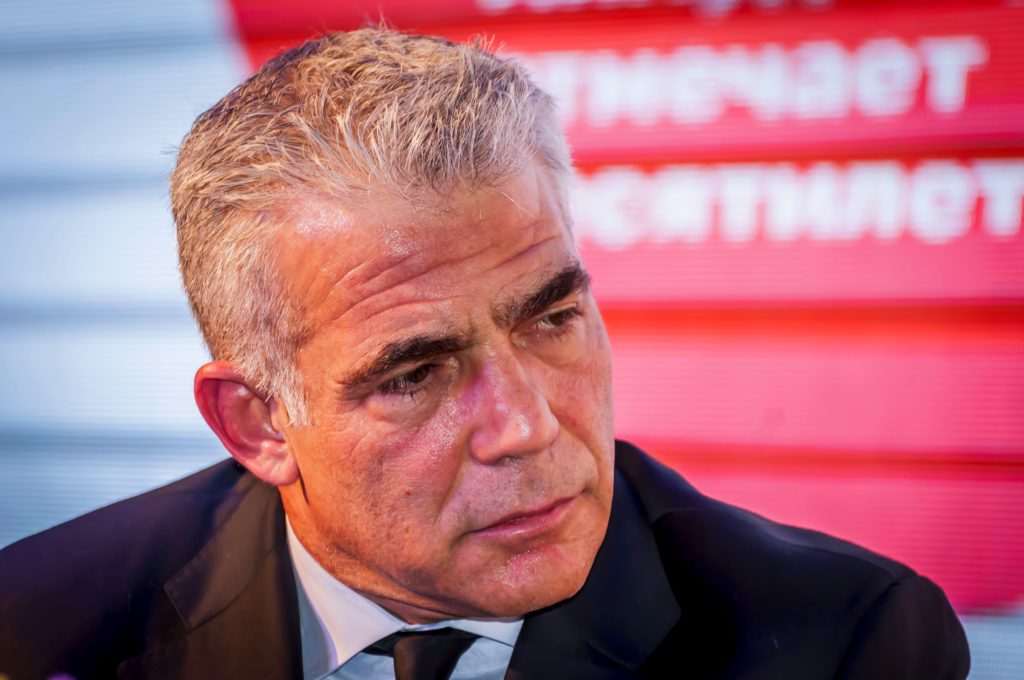
Yair Lapid (Photo: Roman Yanushevsky/ Shutterstock.com)
Alternate Prime Minister/Foreign Affairs: Yair Lapid (Yesh Atid)
Yair Lapid, the chairman of the Yesh Atid (“there is a future”) party, is the alternate Prime Minister who will take over as PM from Bennett in August 2023 under the coalition agreements creating the new government. Until then, Lapid will serve as the Minister of Foreign Affairs, and an “Alternate Prime Minister” will have right to veto any government decision.
His political career dates back to 2012 when he founded the Yesh Atid party, with a secularist and centrist “clean government” platform. It quickly went on to be the second biggest party in Israel’s Knesset in its first election in 2013, winning 19 seats. From 2013 to 2014, Yesh Atid joined a coalition government led by the Likud, with Lapid serving as Finance Minister under Prime Minister Benjamin Netanyahu. Netanyahu fired Lapid for alleged disloyalty in December 2014, precipitating new elections in March 2015. Yesh Atid declined to 11 seats, and went into opposition.
In the elections held in April 2019, Sept. 2019 and March 2020, Yesh Atid ran as part of a coalition of parties calling itself “Blue and White”, dedicated to replacing Netanyahu, who was by then under indictment, with Lapid agreeing to be second-in-command to former IDF Chief of Staff Benny Gantz, with an agreement that the two would rotate the prime ministership should they win government. Blue and White won more than 33 seats in each of those elections, and effectively held the Likud to a draw in all of them. In May 2020, Gantz reached a deal to create a “national emergency “ government with Netanyahu to deal with the COVID crisis, but Lapid rejected this deal and split Blue and White, taking 17 of the Blue and White’s 33 Knesset members into opposition and becoming Opposition Leader.
In the March 2021 election, Yesh Atid won 17 seats, again making it the second-largest party in the Knesset. Lapid was given a mandate to try to form government by Israeli President Rivlin after Netanyahu failed to do so, and was the key player in negotiating the coalition arrangements that brought about the current government.
He was born in Israel in 1963 and is married with three children. He comes from a family history within journalism and politics. His father, Yosef “Tommy” Lapid, was an influential Israeli journalist turned politician, who headed the secularist Shinui party, held a seat in the Knesset from 1999-2006 and served as deputy prime minister and Justice Minister from 2003-2004.
Before beginning his political career, Yair Lapid was a one of Israel’s best-known television presenters and journalists, and the author of several books in various genres. He also took part in social organisations across various causes, including special needs, education, and disadvantaged youth.
In 2013, TIME Magazine ranked him as one of the 100 most influential people in the world.
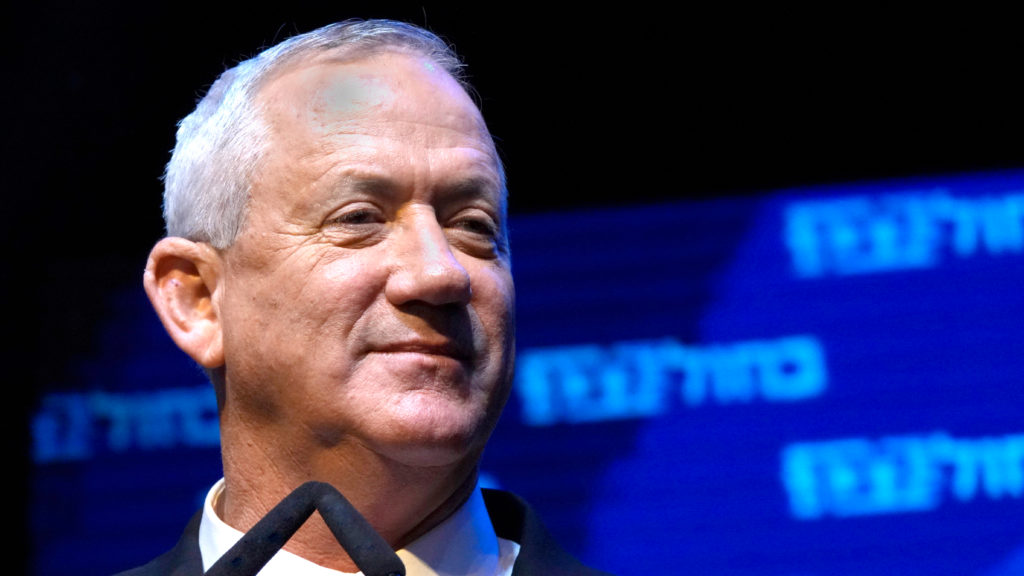
Benny Gantz (Credit: Shutterstock)
Deputy Prime Minister/Defence: Benny Gantz (Blue and White)
Benjamin, or Benny, Gantz is the Deputy Prime Minister and Defence Minister.
He was born in Israel in 1959 and had a long career serving in the IDF. His IDF tenure of 38 years includes being the commander of numerous units: Shaldag Unit, Paratroopers Brigade, Lebanon Liaison Unit, Judea and Samaria Division, GOC Northern Command, and Ground Forces. He also served as a military attaché to the United States and as the 20th IDF Chief of the General Staff from 2011–2015. This period included command of Operation Pillar of Defense (November 2012), Operation Brother’s Keeper (June 2014), and Operation Protective Edge (July 2014).
After leaving the IDF, Gantz took part in social and educational initiatives, serving as the chairman of two organisations and helping found the Pnima (Inward) movement, which seeks to address the rifts and polarisation in Israeli society.
Gantz entered politics in December 2018 when he founded the Israel Resilience Party (Hosen L’Yisrael), which later joined forces with additional parties to form the Blue and White (Kahol Lavan) parliamentary group. He led Blue and White throughout the elections for the 21st, 22nd, and 23rd Knessets, leading the party to an effective draw with Likud in each of those elections.
In May 2020, he agreed to form a “national emergency government” with Netanyahu to deal with the COVID crisis – under a deal in which he would serve as “alternative Prime Minister” as well as Defence Minister, and have become Prime Minister in November 2021. This split Blue and White, leaving Gantz leading only 16 of the party’s original 33 members of Knesset. The Government collapsed because of a failure to pass a state budget after bitter disputes between Gantz and Netanyahu.
In the March 2021 election which resulted, Blue and White gained 8 seats. Gantz remains Defence Minister in the new government, a post he has held since May 2020.
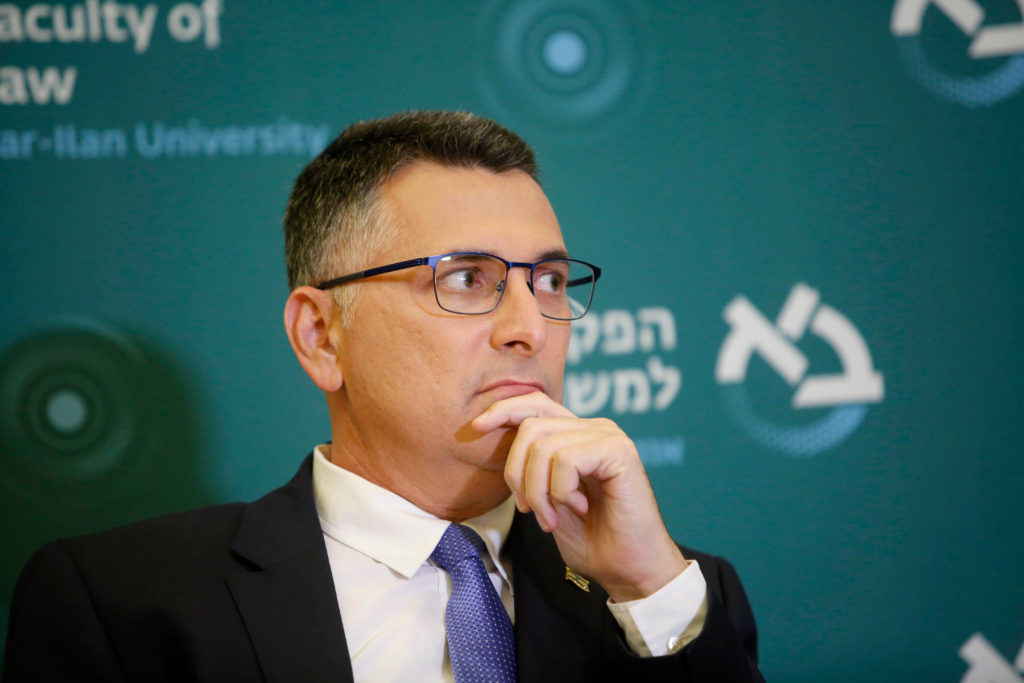
Gideon Saar (Credit: Gil Cohen Magen/ Shutterstock)
Justice Minister/Deputy Prime Minister: Gideon Sa’ar (New Hope)
Gideon Sa’ar is deputy prime minister and Minister of Justice in the new government, and leader of the New Hope party, which he formed in 2020.
He was born in Tel Aviv in 1966 and received both a BA (in Political Science) and an LLB from Tel Aviv University. He worked as an aide to the Attorney-General as well as the State Attorney and then became the Secretary of the Cabinet in the first Netanyahu Government in 1999, and again under Ariel Sharon from 2001-02.
In 2003, he became a member of the Knesset as part of the Likud Party. While in the Knesset, Sa’ar proposed bills to jail employers who fire pregnant women, (he chaired the Knesset Committee on the Status of Women) and to ban cosmetics testing on animals.
After repeatedly doing well in Likud party primaries, he was appointed Minister of Education in March 2009. He became increasingly mentioned as a possible successor to Netanyahu and in March 2013, he became Minister of the Interior. After a reported falling out with Netanyahu, he left politics to return to private life in November 2014.
In April 2017, Sa’ar announced his return to politics and an intention to run in Likud primaries. In Dec. 2019, he lost a Likud leadership primary to Netanyahu. In Dec. 2020, he announced the formation of the New Hope party, which gained six seats in the March 2021 election.
Saar is hawkish on Palestinian issues, and has expressed opposition to a Palestinian state on a number of occasions, but has proposed a Palestinian federation with Jordan as an alternative.
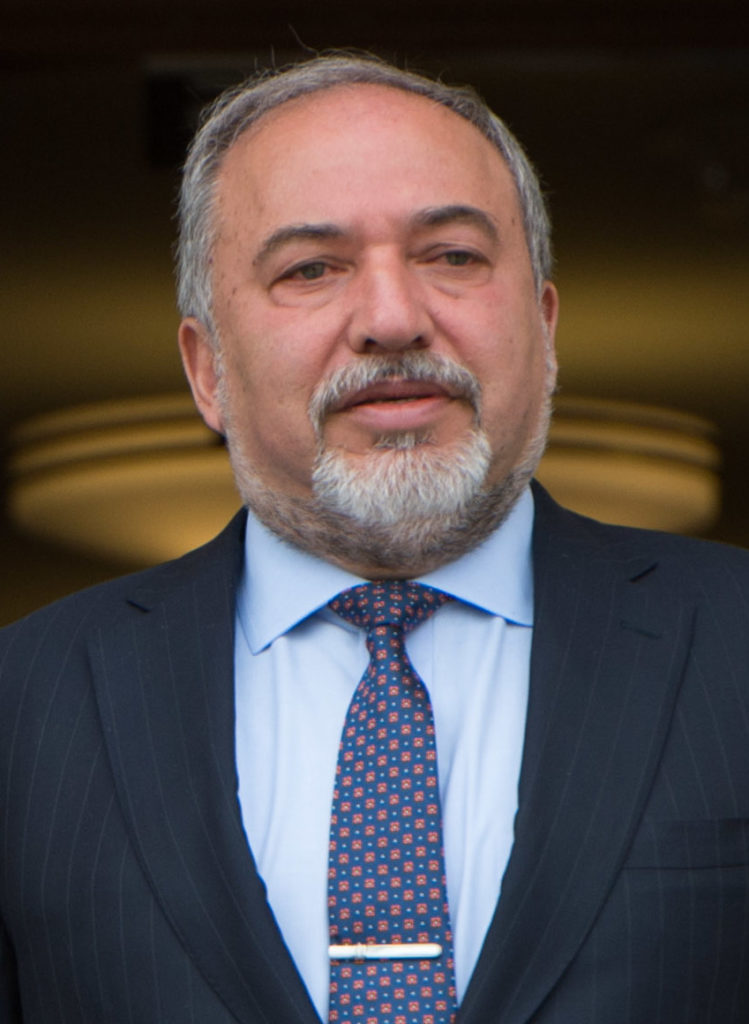
Avigdor Lieberman (Source: Wikipedia)
Finance: Avigdor Lieberman (Yisrael Beiteinu)
Avigdor Lieberman, Minister of Finance and founder and leader of the Yisrael Beiteinu (“Israel our home”) party, was born in 1958 in the Soviet Union. He made Aliyah at age 20, served in the IDF, and earned a BA in International Relations and Political Science from the Hebrew University of Jerusalem.
Lieberman was the Director-General of the Likud Movement from 1993-1996 and Director-General of the Prime Minister’s Office from 1996-1997. After founding and becoming the head of the Yisrael Beiteinu Party in 1999, Liberman was elected to the Knesset.
In 2001, he was appointed Minister of National Infrastructure, then served as Minister of Transportation from 2003-2004 and Deputy Prime Minister and Minister of Strategic Affairs from 2006-2008. In 2009, he was once again appointed Deputy Prime Minister until 2012 as well as Minister of Foreign Affairs until 2012 and again from 2013-2015.
He also served as Minister of Defence from 2016-2018.
Yisrael Beiteinu was originally founded to represent the interests of immigrants from the former Soviet Union to Israel, but in recent years has focused more of its efforts on opposing religious coercion.
From its initial election result of four seats in 1999, the party reached a peak of 15 seats in 2009, but has since seen a decline in electoral fortunes. It received seven seats in the March 2021 election.
While Lieberman’s views are hawkish and populist, he and his party have expressed a willingness to support a two-state solution under the right conditions on a number of occasions.
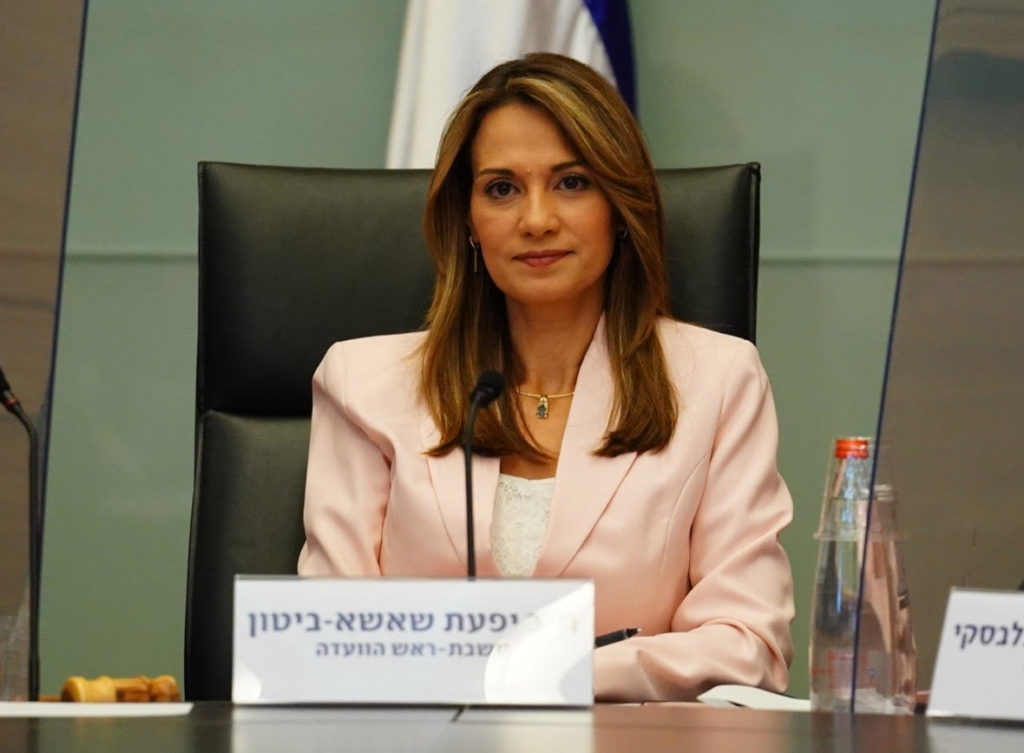
Yifat Shasha Biton (Source: Wikimedia Commons)
Education: Yifat Shasha-Biton (New Hope)
Yifat Shasha-Biton is the Minister of Education and member of the New Hope party.
She was born in Israel in 1973 and comes to this position with an extensive background in education; she received a BA, MA, and PhD in Education from the University of Haifa, and has held leadership roles at Ohalo College and Tel-Hai Academic College, and several positions for the city of Kiryat Shmona.
Shasha-Biton was first elected to the Knesset in 2015 with the Kulanu Party. In 2019, Shasha-Biton was appointed Minister of Construction and Housing, and she was re-elected to the Knesset with the Likud Party. As Minster of Education, she has announced intentions to change schooling to five days a week from its current six in Israel.
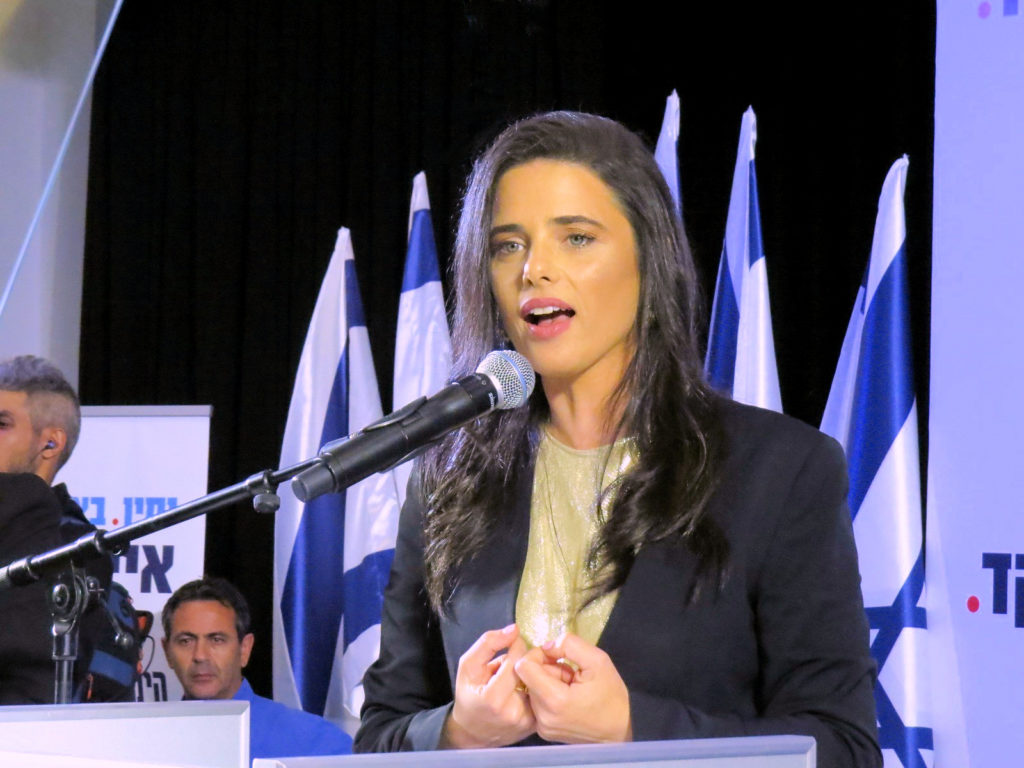
Ayelet Shaked (Credit: Ashernet)
Interior: Ayelet Shaked (Yamina)
Ayelet Shaked, Minister of the Interior and member of the Yamina party, was born in Tel Aviv in 1976. After serving in the IDF, she earned a BSc in electrical engineering and computer science from Tel Aviv University and worked in a variety of roles at Texas Instruments.
She began her public career in 2006 as the director of Benjamin Netanyahu’s office, and in 2013, she was elected to the Knesset with the Habayit Hayehudi (Jewish Home) party. She has held a seat in the Knesset since then, representing the Hayamin Hehadash (New Right) and Yamina parties.
From 2015-2019, Shaked was the Minister of Justice, and has made judicial reform a key priority of her political career.
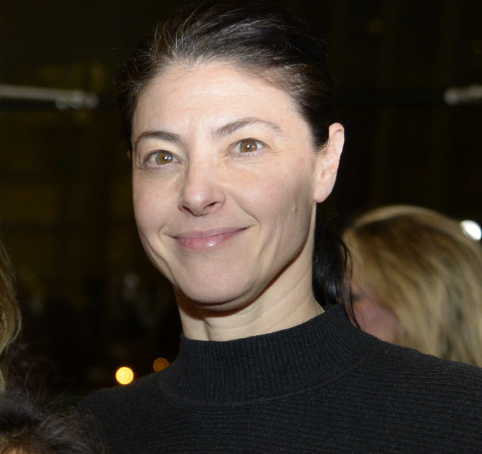
Merav Michaeli (Source: Wikimedia Commons)
Transportation: Merav Michaeli (Labor)
Merav Michaeli is the Minister for Transportation and leader of the Labor party, which she joined in 2012. She became a member of Knesset in 2013 and has held a seat since.
Before entering politics, she was an active journalist, including for Haaretz, and taught university classes focused on media and gender. Michaeli has worked across a variety of sectors, including society and economy, gender equality, religion and state, LGBT rights, workers’ rights and promotion of the peace process, and she has been ranked as one of the most socially oriented legislators.
Michaeli rejected the agreement of then-party leader Amir Peretz to serve in the Netanyahu-Gantz “emergency government” in May 2020, and sat in opposition. She became leader of the venerable Israeli Labor party in Jan. 2021, and succeeded in somewhat reviving its flagging fortunes in the March 2021 election, primarily through a focus on social issues. Labor gained seven seats when the party had widely been expected to fail to gain enough votes to even enter the Knesset a few months previously.
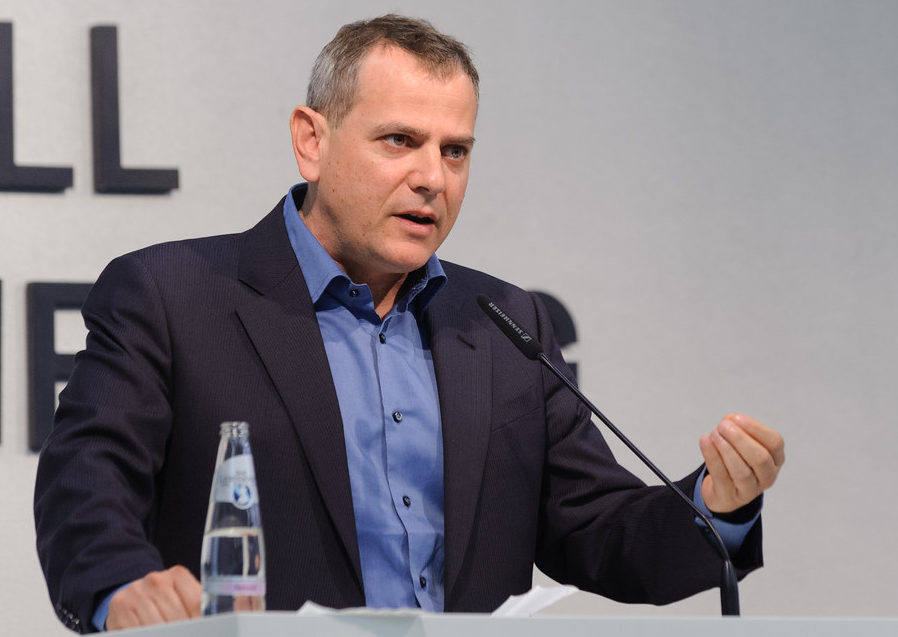
Nitzan Horowitz (Source: Flickr)
Health: Nitzan Horowitz (Meretz)
Nitzan Horowitz is the Minster for Health and member of the Meretz party. He was also the first openly gay Knesset member to head a major party.
Horowitz was born in Rishon LeZion in 1965 and after attending Tel Aviv University Law School, began a career in journalism. He has reported for Galatz, Haaretz, and Channel 10.
In 2008, Horowitz resigned from Channel 10 and began his political career with the Meretz party. He was elected to a seat in the Knesset, serving from 2009-2015, and again since 2019.
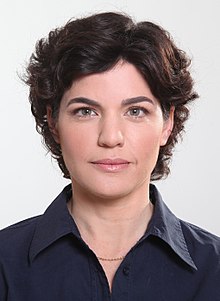
Tamar Zandberg (Source: Wikimedia Commons)
Environmental Protection: Tamar Zandberg (Meretz)
Tamar Zandberg is the Minister for Environmental Protection. From 2003, Zandberg worked as a parliamentary assistant to Knesset member Ran Cohen, and in 2008, she began serving on the Tel Aviv-Yafo City Council.
From 2013 through this past year, Zandberg has held a seat in the Knesset with the Meretz party.
Zandberg is an activist for human, women’s, and animal rights, and she has won the Green Globe Award for her work related to environmentalism and sustainability.
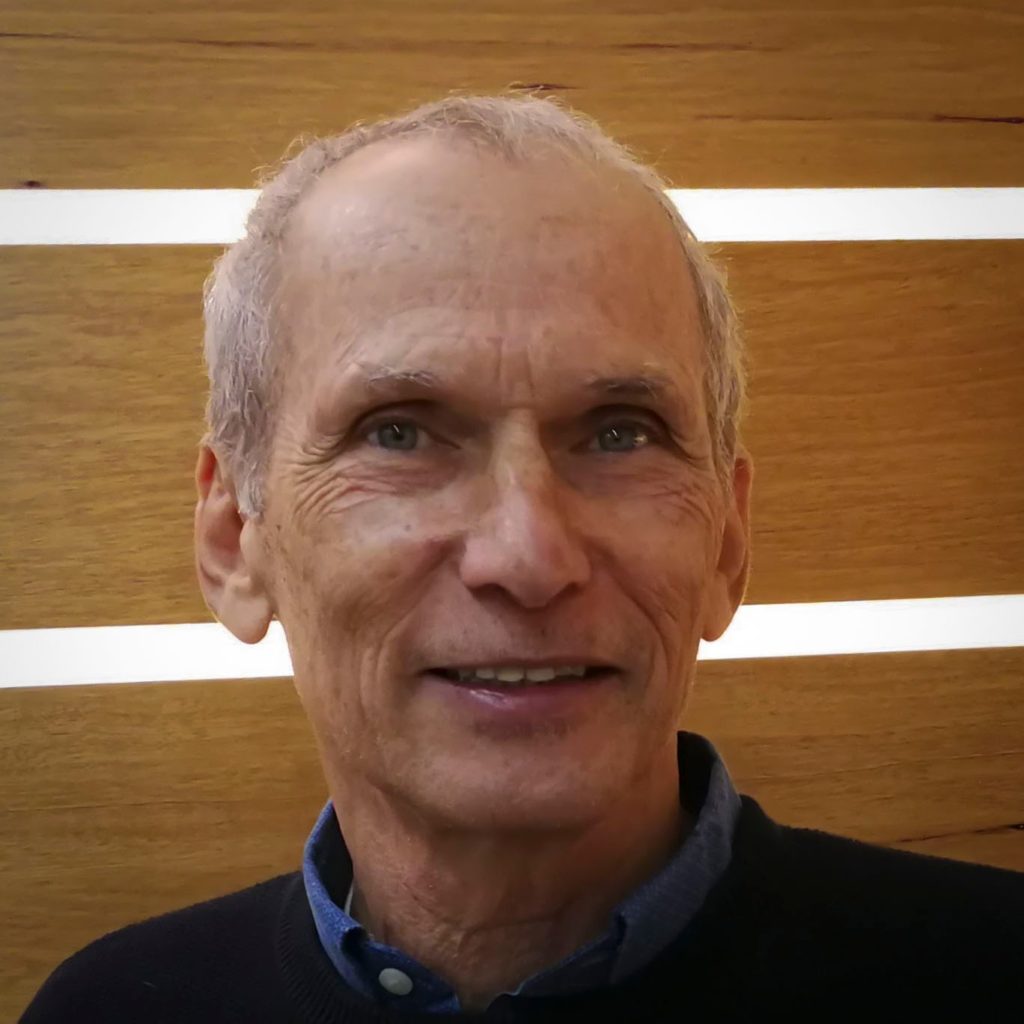
Omer Bar Lev (Source: Wikimedia Commons)
Public Security: Omer Bar-Lev (Labor)
Bar-Lev was born in Haifa in 1953, and spent part of his childhood in the United States and France. He was a commander of the Sayeret Matkal special forces unit, through which he took part in operations including the Savoy Hotel and Entebbe.
After years of military service and earning a BA in agriculture and MA in International Relations, Bar-Lev worked in the high-tech sector.
Bar-Lev has held a seat in the Knesset since 2013 with the Labor party, and he is now also the Minister for Public Security.
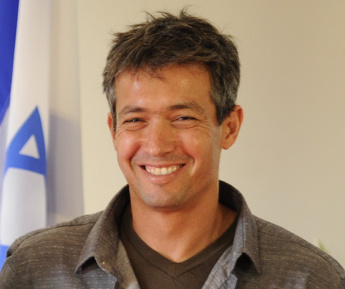
Yoaz Hendel (Source: Wikimedia Commons)
Communications: Yoaz Hendel (New Hope)
Yoaz Hendel, the Minister for Communications, was born in Petah Tikvah in 1975. After serving as an officer in the IDF, he earned several degrees in history from Tel Aviv University, including a PhD in military history. He has taught at Bar-Ilan University, written for a number of news publications alongside his own books, and hosted numerous radio shows.
In 2011, Hendel was appointed the Director for Communications and Public Diplomacy by Prime Minister Netanyahu, and he also worked on a negotiation team in 2012 with the Palestinians in Jordan.
Since 2019, Hendel has held a seat in the Knesset, initially with the Blue and White party before moving to New Hope before the recent election. Hendel is already familiar with the role of Minister for Communications, having been appointed to this cabinet position for a short stint in 2020.
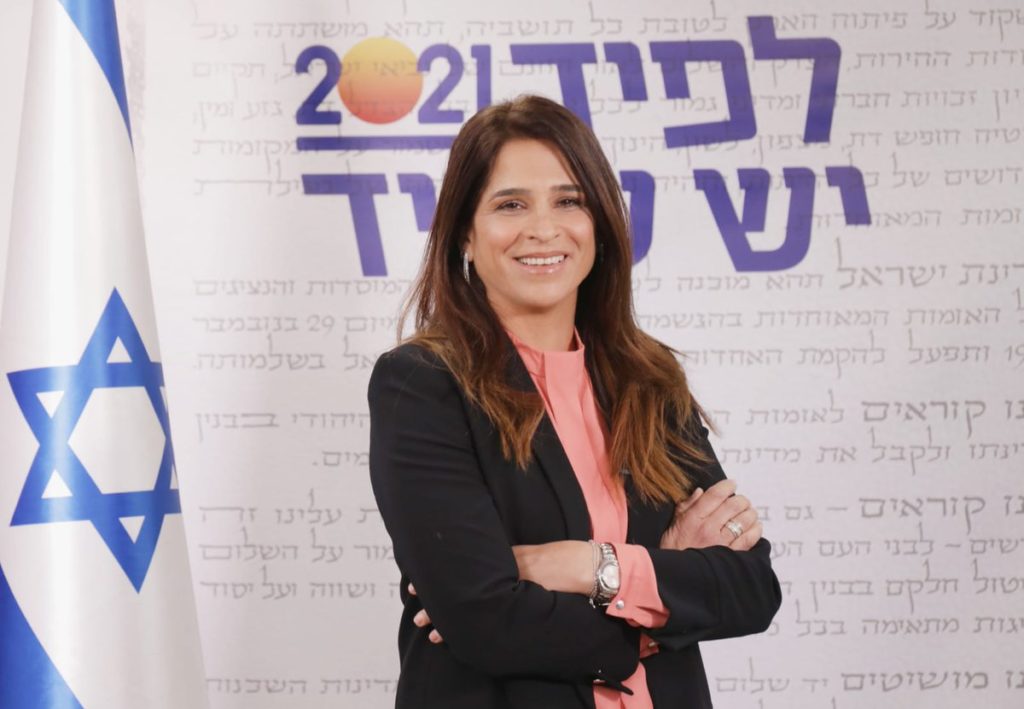
(Source: Twitter)
Energy: Karine Elharrar (Yesh Atid)
Karine Elharrar is the Minister for National Infrastructure, Energy, and Water Resources. Elharrar was born in Holon in 1977 and earned a Master of Laws from American University in Washington DC. She returned to Israel and worked on legislation to benefit people with disabilities. She is also active in advocating for children’s rights, including work related to foster care and daycare centers.
Elharrar has held a seat in the Knesset since 2013 as a member of the Yesh Atid party. However, this is Elharrar’s first cabinet appointment, and it is also the first time there has been a disabled cabinet minister; she suffers from muscular dystrophy and uses a wheelchair.
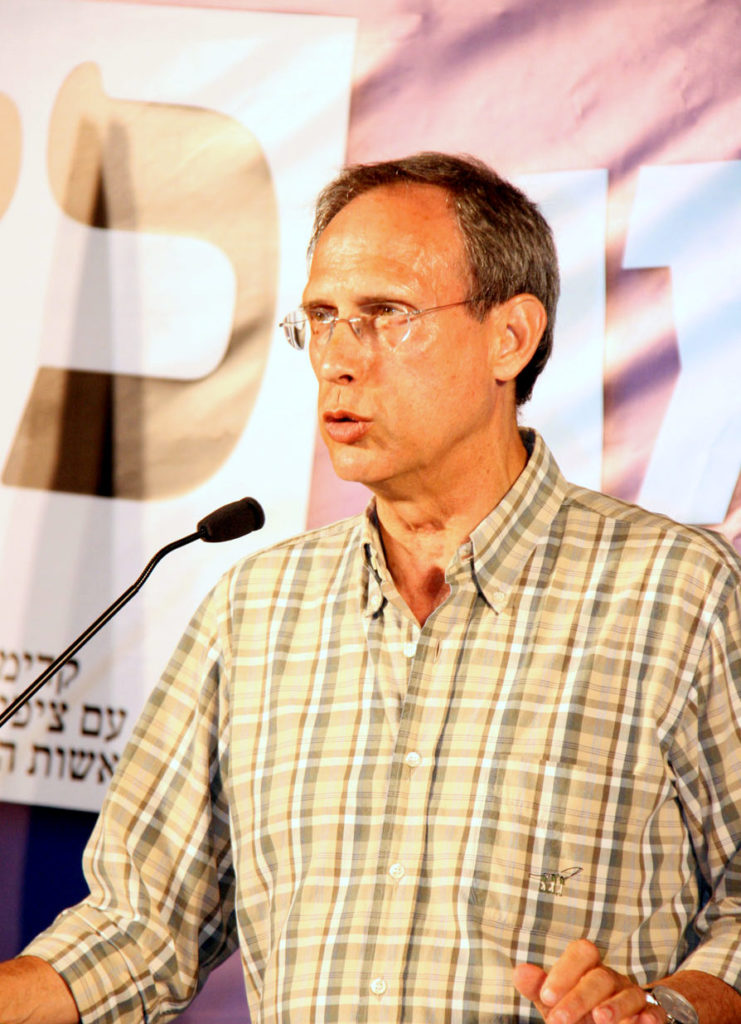
Nachman Shai (Source: Wikimedia Commons)
Diaspora Affairs: Nachman Shai (Labor)
Nachman Shai is the Minister for Diaspora Affairs and member of the Labor Party. He was born in Jerusalem in 1946, and he earned a BA in history and political science as well as an MA in communications from the Hebrew University of Jerusalem. He has also studied and conducted research in the United States, and went on to obtain a PhD in political science and communications from Bar Ilan University in 2009.
In 1979, he became press secretary for the Israeli delegation to the United Nations in New York, and in 1981 was named press consultant to Israel’s Washington embassy. He served as the IDF Spokesman between 1988 and 1991. He was previously a member of Knesset from 2009–2019, initially with the Kadima Party, but he left to join the Labor Party prior to the January 2013 elections.
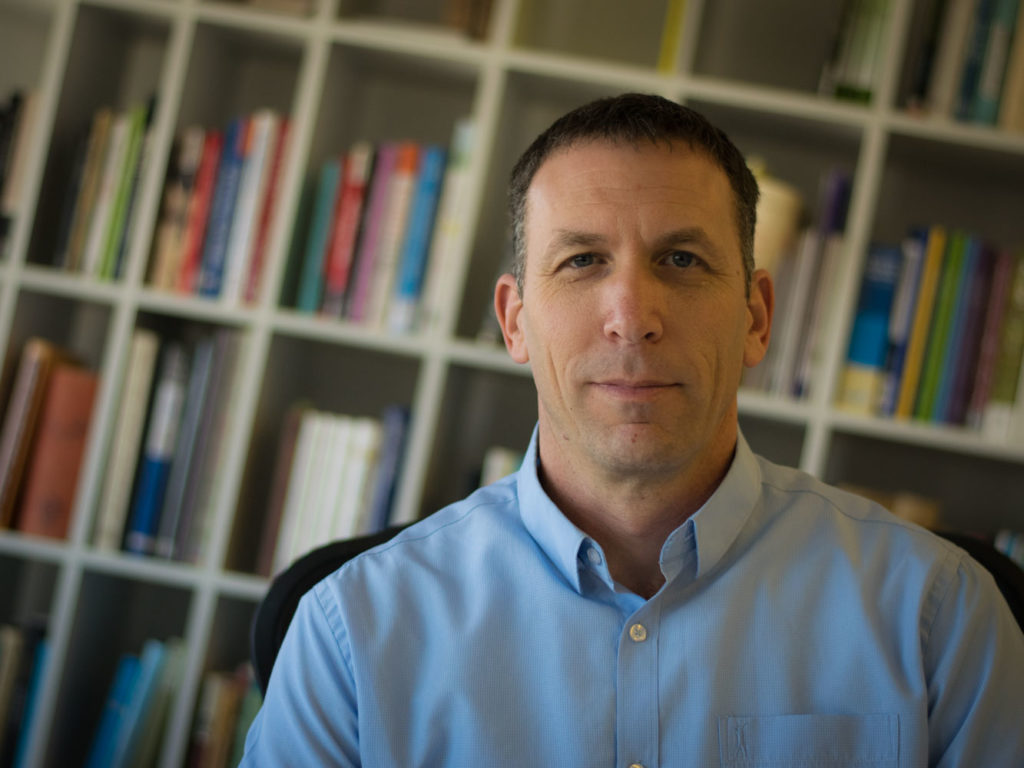
Matan Kahana (Source: Wikimedia Commons)
Religious Affairs: Matan Kahana (Yamina)
Matan Kahana, the Religious Affairs Minister, was born in Haifa in 1972, was a fighter pilot and officer in the Israeli Air Force, and holds Bachelor and Master degrees in Law.
Beginning in 2018, Kahana served as the director of the Diaspora Initiative at the Center for Educational Technology, and in 2019, he became a member of the Knesset with the Yamina party.
Given the diversity of the 36th government and Bennett’s status as Israel’s first Orthodox prime minister, and the strong attacks on the government from ultra-Orthodox politicians, Kahana’s role will be particularly important in terms of maintaining the balance of religious-secular relations in Israel.
He has pledged to maintain the broad “status quo” that governs issues of religion and state, but also to attempt to fix abuses and introduce urgent reforms.
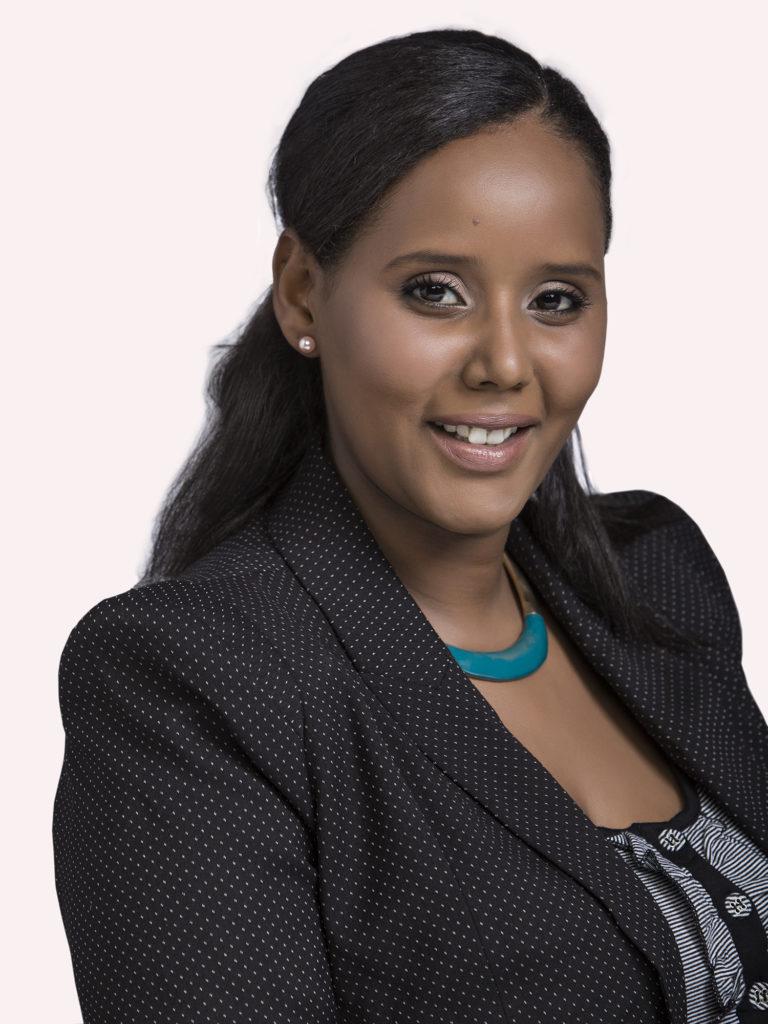
Pnina Tamano-Shata (Source: Wikimedia Commons)
Aliyah and Integration: Pnina Tamano-Shata (Blue and White)
Pnina Tamano-Shata will remain the Aliyah and Integration Minister, a position she has held since 2020.
Tamano-Shata was born in 1981 in Ethiopia, making her the first Ethiopian-born Israeli minister. Her family came to Israel when she was three during the evacuation of the Ethiopian Jews from Sudan termed Operation Moses. She, her five brothers and her father were among almost 7,000 Ethiopian Jews airlifted out of the country by Israel’s Mossad between November 1984 and January 1985. Her mother followed several years later.
She has held a seat in the Knesset since 2013 with the Yesh Atid party, and she also made history back then as the first Ethiopian-born woman elected to the Knesset.
Before entering politics, Tamano-Shata served in the IDF within the Home Front Command, studied law at Ono Academic College, and worked as a TV reporter. She has also served as the chairperson of the Ethiopian Israeli Student Union and was one of the founders of the Headquarters for the Ethiopian Jews’ Struggle for Social Equality.
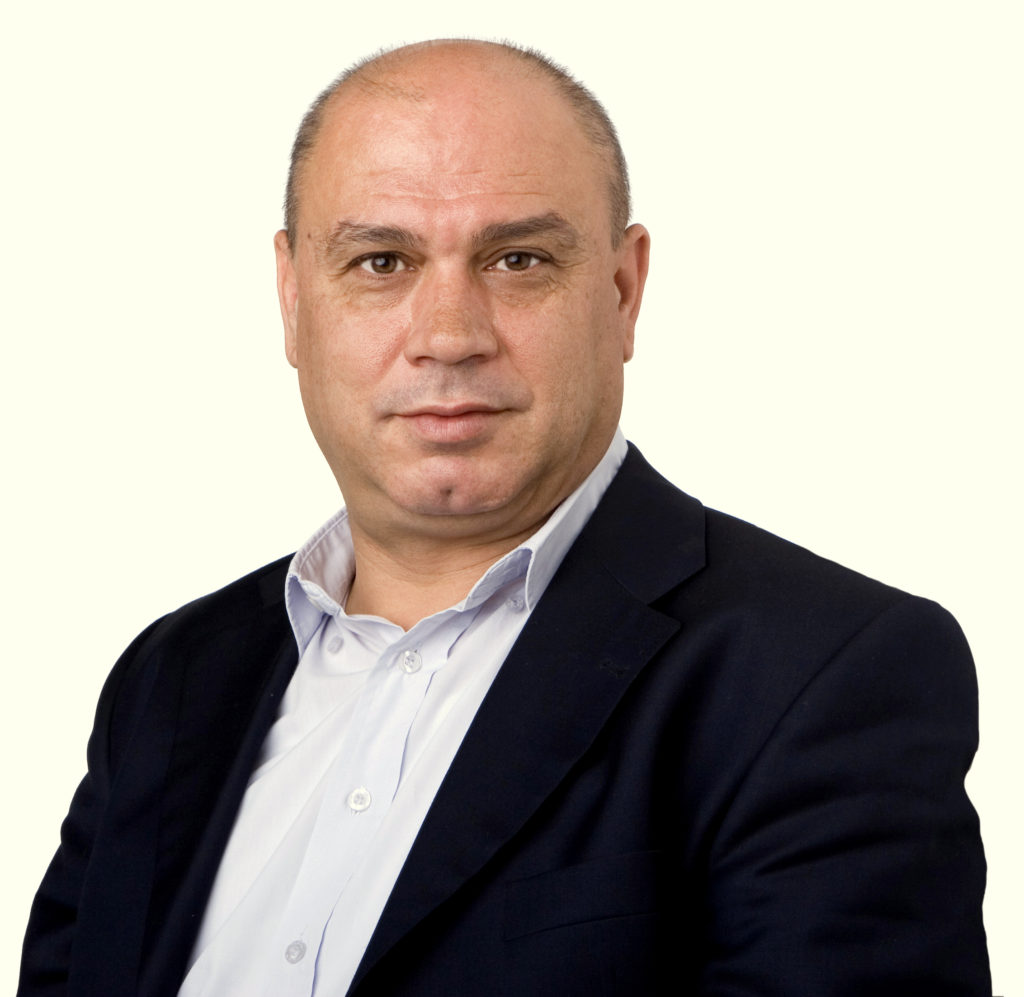
Essawi Frej (Source: Wikipedia)
Regional Cooperation: Essawi Frej (Meretz)
Essawi Frej is the Minister for Regional Cooperation. He is a Muslim Arab-Israeli born in 1963 in Kfar Qasim.
Frej studied accounting and economics at the Hebrew University of Jerusalem. He later worked as an accountant and was an activist for Peace Now and other pro-peace NGOs.
He first ran for the Knesset in 2003 with Meretz, but did not obtain a seat until 2013. Frej held that seat until losing it in 2019, but regained it in the recent election.
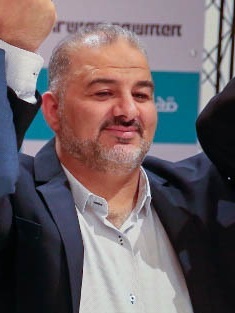
Mansour Abbas (Source: Wikimedia Commons)
Deputy Minister of Arab Affairs: Mansour Abbas – head of the Islamic Ra’am party
Dr. Mansour Abbas is the head of the Islamic Ra’am party, or United Arab List, a party established in 1996.
Abbas has led it since early 2019 when he was first elected to the Knesset.
Abbas was born in the northern Israeli town of Maghar in 1974, and attended the Hebrew University of Jerusalem to study dentistry. While there, he was Chair of the Arab Students Committee from 1997 to 1998. It was also there that he learned from Sheikh Abdullah Nimr Darwish, the founder of the Islamic Movement in Israel. Abbas has said, “Everything I do today I absorbed from the legacy of Sheikh Abdullah Nimr Darwish.”
After working as a dentist for a number of years, Abbas became Secretary-General of the United Arab List in 2007, and in 2010 he was elected Deputy Chairman of the Southern Branch of the Islamic Movement.
Abbas will now become Deputy Minister of Arab Affairs in the office of the Prime Minister. He played a vital role in facilitating the establishment of the current government by breaking with past practice which saw Arab-dominated parties refusing to become part of Israeli governing coalitions.
Through this move, he has said he hopes to wear “two hats”: “Arab Palestinian” and “Arab citizens of Israel.” A priority for Abbas is solving the various problems that the Arab citizens of Israel face, including law and order in Israeli Arab towns, issues with town planning and building permits, and a lack of funding for Arab municipalities.
Tags: Israel



